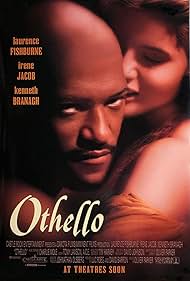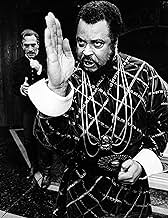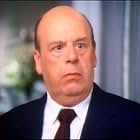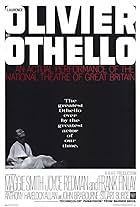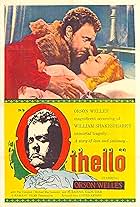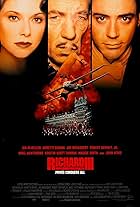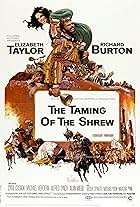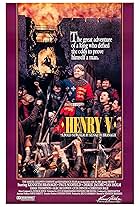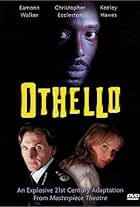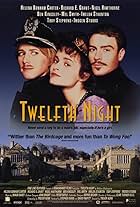The Moorish General Othello is manipulated into thinking that his new wife Desdemona has been carrying on an affair with his Lieutenant Michael Cassio, when in reality, it is all part of the... Read allThe Moorish General Othello is manipulated into thinking that his new wife Desdemona has been carrying on an affair with his Lieutenant Michael Cassio, when in reality, it is all part of the scheme of a bitter Ensign named Iago.The Moorish General Othello is manipulated into thinking that his new wife Desdemona has been carrying on an affair with his Lieutenant Michael Cassio, when in reality, it is all part of the scheme of a bitter Ensign named Iago.
- Director
- Writers
- Stars
- Awards
- 3 nominations total
Irène Jacob
- Desdemona
- (as Irene Jacob)
André Oumansky
- Gratiano
- (as Andre Oumansky)
Luca Guardabascio
- Servant in the dancin scene
- (uncredited)
- Director
- Writers
- All cast & crew
- Production, box office & more at IMDbPro
Featured reviews
I rented this film mainly to see Kenneth Branagh once again, but was totally surprised by the entire cast, especially Laurence Fishbourne who portrayed Othello brilliantly. The dignified, regal Fishbourne transforms Othello into a tragic figure with restraint, control and believability. It was also an added surprise to see two actors from Brahagh's Hamlet: Michael Maloney and Nicholas Farrel. And any film with Nathaniel Parker is a pleasure. Branagh brought a depth to Iago that I hadn't seen before, especially during the scene on the beach when he and Othello hug. Iago in tears? And then again at the final scene. Iago was evil, yes, but for an actor to find a few moments to make him human -that's when the audience knows something extraordinary has happened on stage or screen. See this film.
While maintaining the location and time period of the original play, this film gives us a much clearer insight into Othello as a character and as a story than many of the supposedly more important versions. The dialogue is trimmed to what is essential, the settings are atmospheric, and the cast is great. You will never forget the story after you see this version.
it is almost a spell. of a meet after a long time. because the performance of Laurence Fishburne is amazing. the result - scene by scene he becomes Othello in a manner who escapes from a simple role. and Kenneth Branagh - yes, he gives to Iago the right word and though and intention and gesture. because this is the best good point of film - to recreate a world in each of its details. maybe, it is not the best Othello version. but it is one of the most honest. and realistic. you feel the Moor. each of his states. each traits of his jealousy and fury and doubts. maybe, it is the memorable role of Laurence Fishburne career.
Director Oliver Parker wanted to make Othello a more "pacy" story, so he omitted quite a lot of the original text when writing this version for the screen. Luckily, the cuts and alterations that he has made do little damage to the old Shakesperean chestnut. I wouldn't say that any of the tweaks are particularly for the better, but the essence of Shakespeare's tale of envy, jealousy and deceit is so powerful that it would take a bungling fool - an Ed Wood wannabe, for instance - to rob it of its power. The weighty themes shine through as strongly as ever in this latest presentation.
Laurence Fishburne plays the titular character, a renowned Moorish soldier. His courage has impressed young Venetian lady Desdemona (Irene Jacob) and the pair of them secretly marry. However, her father is displeased by this secret ceremony and he warns Othello that if she can deceive her own father then she may one day do the same to him. One of Othello's soldiers, Iago (Kenneth Branagh) fails to get a promotion of rank which he feels he deserves, and to gain revenge he engineers a series of lies and incidents designed to convince Othello that his wife is being disloyal to him by fornicating with another man.
Inevitably, viewers may find themselves comparing this version with other productions. How does it rank alongside the 1952 Orson Welles version and the 1965 Laurence Olivier one? To be honest, it depends upon the viewer. Purists would probably opt for the Olivier offering, since it is only very slightly abridged and contains such strong performances that all four lead actors earned Oscar nominations. Film buffs might go for the Welles version, with its moody b&w lighting and a now-classic murder scene, not to mention the fact that the production history itself is as fascinating as the story. This version will undoubtedly find favour with viewers more inclined towards modern tastes. It has high production values, a sweeping score, accessible delivery of the lines, flashy photography, and "cool" stylistic touches (Fishburne's head tattoo, for instance). Personally, I feel the 1952 Othello will always be the benchmark, but this one is reasonably well made and it compares quite favourably with other versions.
Laurence Fishburne plays the titular character, a renowned Moorish soldier. His courage has impressed young Venetian lady Desdemona (Irene Jacob) and the pair of them secretly marry. However, her father is displeased by this secret ceremony and he warns Othello that if she can deceive her own father then she may one day do the same to him. One of Othello's soldiers, Iago (Kenneth Branagh) fails to get a promotion of rank which he feels he deserves, and to gain revenge he engineers a series of lies and incidents designed to convince Othello that his wife is being disloyal to him by fornicating with another man.
Inevitably, viewers may find themselves comparing this version with other productions. How does it rank alongside the 1952 Orson Welles version and the 1965 Laurence Olivier one? To be honest, it depends upon the viewer. Purists would probably opt for the Olivier offering, since it is only very slightly abridged and contains such strong performances that all four lead actors earned Oscar nominations. Film buffs might go for the Welles version, with its moody b&w lighting and a now-classic murder scene, not to mention the fact that the production history itself is as fascinating as the story. This version will undoubtedly find favour with viewers more inclined towards modern tastes. It has high production values, a sweeping score, accessible delivery of the lines, flashy photography, and "cool" stylistic touches (Fishburne's head tattoo, for instance). Personally, I feel the 1952 Othello will always be the benchmark, but this one is reasonably well made and it compares quite favourably with other versions.
I am a very big fan of Shakespeare - being an actor it almost comes with the territory, but i am not a fan of Shakespeare being cut - It should be performed as it was written. But this version by Oliver Parker seems to pull it off.
Being a touch put off by the fact that he had cast Laurence Fishburne as the moor, I watched it for the mere fact that Brannagh was playing Iago. Brannagh is the man who knows when it comes to the Bard, and being a slightly different part to play for him (and he wasn't directing it) it seemed very interesting. And he pulled off the character wonderfully.
He managed to play Iago with just enough flourish without making everything obvious. If I didn't already know the story I may have though he was telling the truth half of the time.
Fishburne himself actually gives in a good if somewhat restrained performance and Irene Jacob as Desdemona is convincing, but it is the boy from Belfast, Brannagh, who steals the show.
There are many excellent minor performances in the movie also, Michael Maloney as Rodrigo and Anna Patrick as Emilia to name but two.
Parker's direction of the piece is also very good, especially visually, the love scenes with the black/white skin are a bit obvious, but still a nice touch.
The bottom line for me, would be if you enjoy Shakespeare and Othello isn't on at your local Theatre - rent the video, or go to the cinema to see this version - you won't be disappointed. If you don't enjoy Shakespeare - watch it and be converted.
Being a touch put off by the fact that he had cast Laurence Fishburne as the moor, I watched it for the mere fact that Brannagh was playing Iago. Brannagh is the man who knows when it comes to the Bard, and being a slightly different part to play for him (and he wasn't directing it) it seemed very interesting. And he pulled off the character wonderfully.
He managed to play Iago with just enough flourish without making everything obvious. If I didn't already know the story I may have though he was telling the truth half of the time.
Fishburne himself actually gives in a good if somewhat restrained performance and Irene Jacob as Desdemona is convincing, but it is the boy from Belfast, Brannagh, who steals the show.
There are many excellent minor performances in the movie also, Michael Maloney as Rodrigo and Anna Patrick as Emilia to name but two.
Parker's direction of the piece is also very good, especially visually, the love scenes with the black/white skin are a bit obvious, but still a nice touch.
The bottom line for me, would be if you enjoy Shakespeare and Othello isn't on at your local Theatre - rent the video, or go to the cinema to see this version - you won't be disappointed. If you don't enjoy Shakespeare - watch it and be converted.
Did you know
- TriviaThis production marks the first time a black man was cast in the title role in a film version of Othello.
- GoofsIn the beach scene, equipment boxes are visible on the upper slope of the beach as Iago and Othello walk along.
- How long is Othello?Powered by Alexa
Details
- Release date
- Countries of origin
- Official site
- Language
- Also known as
- Otelo
- Filming locations
- Production companies
- See more company credits at IMDbPro
Box office
- Budget
- $11,000,000 (estimated)
- Gross US & Canada
- $2,844,379
- Opening weekend US & Canada
- $29,097
- Dec 17, 1995
- Gross worldwide
- $2,844,379
- Runtime2 hours 3 minutes
- Sound mix
- Aspect ratio
- 1.85 : 1
Contribute to this page
Suggest an edit or add missing content

